JUST EAT REAL FOOD
This is the catch phrase and foundation principle for my nutrition philosophy. It’s simple, it’s effective and in amongst all the confusion of information in the nutrition world it brings a sense of clarity.
Nutrition science is complex because we’re amazingly wonderful and complex beings. Also in truth it’s only been in pretty recent history in the grand scheme of things that we’ve really devoted any significant research to nutrition. This makes it a super exciting and rapidly changing field of knowledge. However, though the science is complex, the practical application of “nutrition science to life” is actually very simple. It is summed up by my favourite words, just eat real food.
Ultra-processed food
Research is starting to show, unsurprisingly, just how dangerous a diet laden with ultra-processed food is. Two recently published studies (1) (2) show that higher intake of these foods increases the risk of cardiovascular disease and all cause mortality. The foods included as ultra-processed were packaged bread, pre-prepared meals, breakfast cereals and all the other usual culprits such as biscuits, pastry, confectionery etc. An article published in Nutrients describes these foods as “not “real food” but formulations of food substances often modified by chemical processes and then assembled into ready-to-consume hyper-palatable food (cosmetic food).” (4)
Formulations, food substances, chemical processes? None of that sounds like something I would want to eat. But the things is, a large part of our typical diet is made up of these foods, like commercial bread and cereals. Humans have eaten forms of these foods for centuries, but not in the extremely processed form we eat them today. For the sake of our health we need to move back to real food.
Ok, great! But what is REAL food?
Real foods are foods with low “human interference factor” (HIF). Human interference factor is a term used to described the level of human interaction with a food product it takes to bring it to the shop shelf. Ideally, we should be eating foods that are in their most natural form.
There are a few other guiding rules we can use to determine whether something is really a good human food.
Foods that look like or very similar to the form they grow in
For example, homemade potato wedges look a lot like a potato. Whereas frozen potato croquettes or hash browns really don’t look much like a potato at all. The HIF is high. Another example is wholegrain rolled oats as opposed to instant oatmeal sachets or boxed cereals. These are factory produced products that look nothing like the form they grow in.
Foods that ARE an ingredient, rather than foods that CONTAIN ingredients.
For example, a piece of steak or a carrot is an ingredient, whereas a piece of salami or a microwave meal comes with a list of ingredients. There is a little bit of a caveat here however. Some great foods do have a small ingredients list, such as butter (cream and salt) and natural yoghurt (milk, cream, probiotics and gelatine). Or even some quality simple foods like seed and nut crackers. In this case, choose foods with the least added ingredients and make sure the ingredients that are there are real food ingredients, not numbers, preservatives, flavours, colours etc.
Foods that your great grandparents would have recognized as food.
For example fruit, vegetables, meat, eggs, nuts, seeds, wholegrains and simple dairy products. Again, there are a few little exceptions to this rule. For example a good quality protein powder was probably not a common food item 100 years ago but can be useful and a healthy dietary inclusion nevertheless.
Foods that don’t have or need fancy labels or expensive advertising campaigns.
It’s no secret, that to make money in the food industry, you take a cheap base line product, add some value, usually in the form of sugar, salt and flavour, and then market it as a health food with really attractive packaging (3). You never see carrots or spinach getting that kind of treatment, they just sit there, often in bulk bins with no packaging whatsoever. But you can guarantee they’re an honest to goodness real food.
For many people, simply making a move to eating real whole foods, could make one of the biggest impacts to their health of any diet or lifestyle change they could choose.
Do a REAL food audit on your kitchen
I encourage you to take a moment and go have a look through your kitchen, or think back over what foods you’ve eaten in the last 24 hours.
- What percentage looked very similar to the way it grows?
- How much of it was from a package?
- Did it grow or come from a factory?
- How much of it was an ingredient rather than the product of a list of ingredients?
- Would your great grandmother recognized it?
The answers are often quite eye opening. It’s sobering to realize that a lot of what we eat is a man made product and not a real food at all.
Why I love REAL food
There are lots of benefits we can reap by switching to eating real foods, and avoiding processed, packaged, high HIF foods.
Our health benefits because our body knows what to do with these foods. It has the enzymes to digest them and they are full of naturally occurring nutrients that keep us thriving. By increasing the real food in our diets, we naturally reduce the exposure we are getting to food additives. Things like flavour enhancers, preservatives, colors and stabilizers. These additives are more often than not, not even a food product and can be inflammatory or produce negative health effects.
Local suppliers grow and produce real foods. Buying from them benefits our local community. We don’t have to rely on factories and shipping etc when we can get real food locally. Vegetables at the farmers market, eggs from the lady down the road and meat from the local butcher. We can keep it local, support small businesses and eat bettter quality fresher food at the same time. New Zealand produces some pretty top quality real foods.
Our environment can also benefit. Eating real food means
- less need for packaging and plastic
- reduced energy consumption to run factory’s and store products
- smaller transport costs required to ship things around the world
Real food is real human food
It’s what our ancestors have eaten for generations. There are cultural or historical variations but the basics remain the same. By switching back to a reliance on real honest food, we could begin to turn the tide on modern disease and it might be the most life-changing dietary decision you could ever make.

